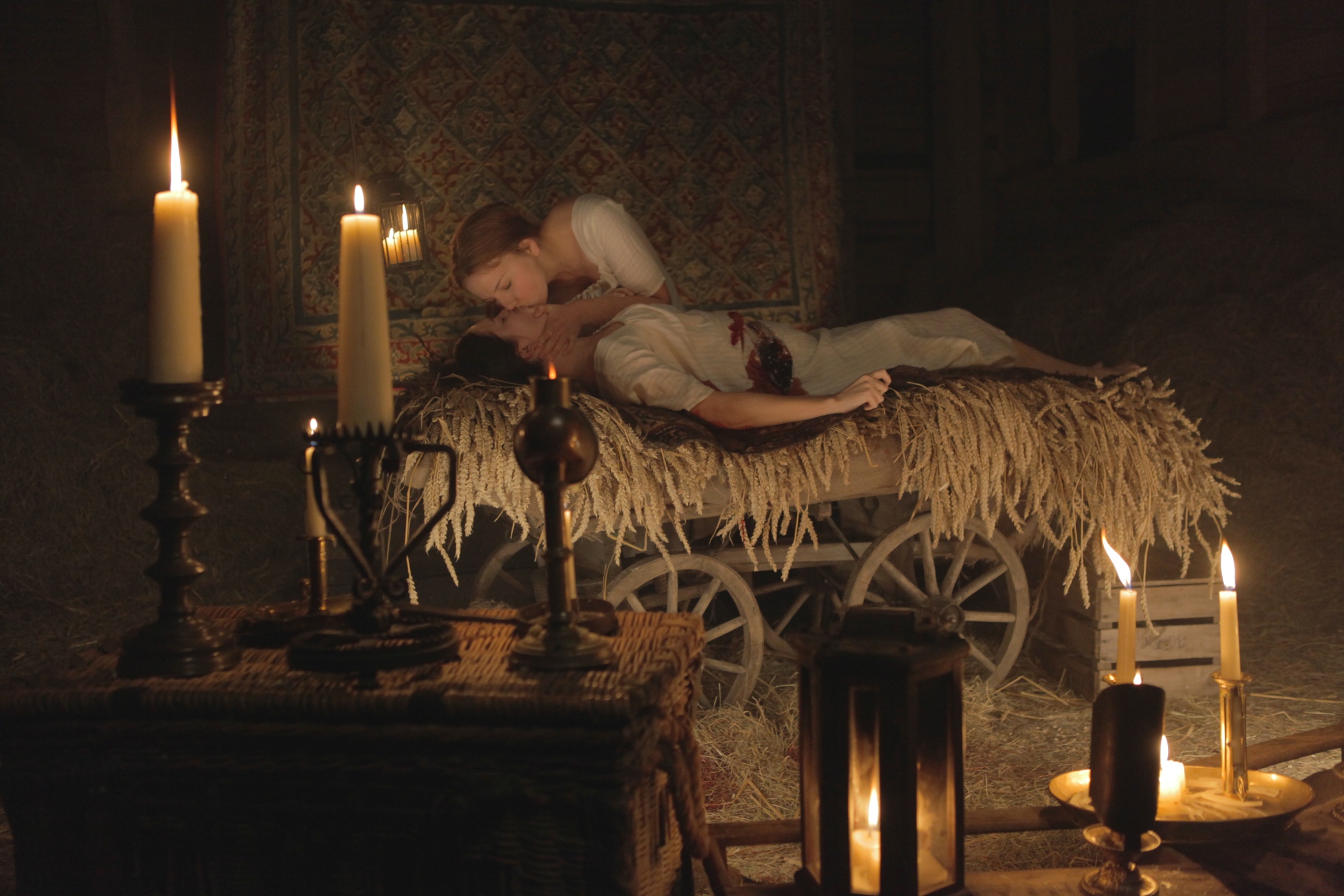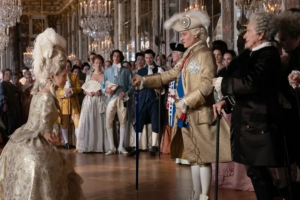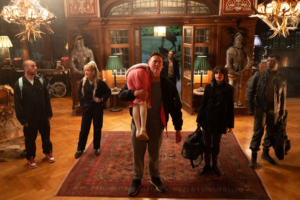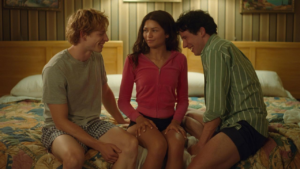Reviewed by GREG KING
Director: Emily Harris
Stars: Jessica Raine, Hannah Rae, Devrim Lingnau, Tobias Menzies, Greg Wise.

A moody gothic vampire tale and coming of age tale this story of forbidden love has been adapted from the 1872 novel written by Irish author Joseph Sheridan Le Fanu, considered one of the greatest proponents of the ghost story in the Victorian era. Carmilla is one of the earliest vampire tales in literature, and predates Bram Stoker’s classic Dracula by about thirty years. It has been quite influential in the gothic horror genre and has been filmed several times – including The Vampire Lovers, a 1970 version from Hammer Horror.
Lara Bauer (played by Hannah Rae, from Broadchurch, etc) is a lonely fifteen-year-old girl who lives in a fairly imposing family house on the moors of rural England. Her mother died while she was quite young, and her father (Greg Wise) is often absent on business. She has been raised by her strict and overbearing governess Miss Fontaine (Jessica Raine, from tv series Call The Midwife, etc). Lara is looking forward to a visit from her cousin, but when the cousin falls mysteriously ill the visit is cancelled and she is stuck at home with little to do.
But then one night a carriage crashes near the house. The driver is killed, and the young passenger Carmilla (German actress Devrim Lingnau) is injured. She is brought to the house to be cared for while she recovers. The local doctor (Tobias Menzies) can’t find any signs of serious injuries but prescribes rest. While Lara is intrigued by Carmilla, Miss Fontaine is suspicious and feels there is something evil and sinister about her. Lara is slowly seduced by Camilla, who is revealed to be a vampire who preys on young and vulnerable girls.
Director Emily Harris has extensive experience working as an editor on documentary films, but she brings a deliberately unsettling vibe to this slow paced and moody film, which remains reasonably faithful to the dark tone of the source material. The film is very slow moving as Harris concentrates on building the foreboding atmosphere and developing the relationship between Lara and Carmilla, and there is some erotic tension between the pair. But Carmilla is not so much an outright horror film as it is subdued and particularly bloodless until the conclusion. In this it is more in the vein of films like Alejandro Amenabar’s 2001 horror film The Others, which established a disturbing, pervasive and unsettling mood.
Carmilla is a film of big ideas and themes as it explores gender roles, the role of religion in shaping people’s attitudes and behaviour in the 19th century, female sexuality, and how unconventional behaviour was considered shocking and unnatural. The film mainly presents as a subdued lesbian romance and 19th century coming of age tale as Lara tries to come to terms with her nascent sexuality.
In keeping with the nature of the material, the performances are also deliberately low key and largely understated, although Raine makes the most of her role as the repressed Miss Fontaine who suspects an evil presence in the house.
The film has been shot in a largely muted palette by cinematographer Michal Wood (who has previously filmed documentaries such as Pavarotti, etc), who uses candlelight and natural lighting where possible, all of which adds to the bleak tone of the material. Much of the film takes place in candlelit rooms and shadows. There are also lots of shots of insects and worms which adds to an underlying theme of decay and corruption of the flesh. This is a handsomely mounted production with some superb production design from Alexandra Walker (Let Me Go, etc).
Carmilla adopts a more subdued and seductive approach to the vampire mythology, but the slow pace and moody visuals mean that this is not a film that will appeal to everyone.
★★☆



